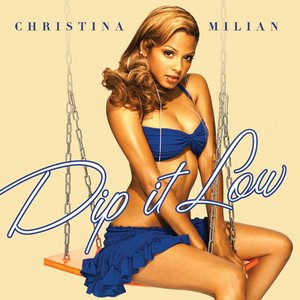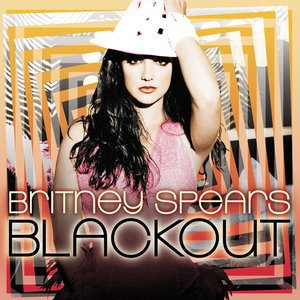Wiki
-
Release Date
2004
-
Length
15 tracks
J.Lo is the second studio album by American singer Jennifer Lopez. It was released on January 16, 2001, by Epic Records. Lopez began recording the album in April 2000, enlisting producers such as Cory Rooney, Troy Oliver, Dan Shea and Sean Combs, all of whom she had worked with on her debut album On the 6 (1999). The album's title refers to the nickname given to her by fans, with Lopez describing it as an homage to her supporters. Drawing from her own experiences, Lopez included more personal songs on this album, which deals with themes of relationships, empowerment and sex. J.Lo is a primarily dance-pop, Latin and R&B album which encompasses Latin pop, retro and contemporary pop.
Upon its release, the album received generally mixed reviews from music critics, who criticized its manufactured sound, while praising its Spanish and dance material. Commercially, J.Lo debuted atop the US Billboard 200 the same week as her film The Wedding Planner opened at number one at the domestic box office, making Lopez the first entertainer to have a number one album and film simultaneously. The album was certified quadruple platinum in the United States, making it her highest-selling to date, and became the sixth most successful album of the year worldwide.
"Love Don't Cost a Thing" was released as the album's lead single on November 20, 2000, reaching number 3 on the US Billboard Hot 100 and number one on the UK Singles Chart. The album's second single, "Play", reached the top twenty in most countries, including the United Kingdom where it reached number three. "I'm Real" was serviced to radio as the album's third on June 19, 2001. To further its success, record executives at Epic recruited Ja Rule of Murder Inc Records to create a remix of the song, "I'm Real (Murder Remix)". The remix, which featured Ja Rule, shifted Lopez's musical style from pop to a more hip hop and urban-oriented sound. It was the number one song in the United States at the time of the September 11 attacks for five non-consecutive weeks. "Ain't It Funny" was released as the album's fourth and final single on June 20, 2001. The album has sold over 8 million copies worldwide.
J.Lo is a pop album with Latin, dance-pop and R&B influences. Lopez revealed, "I don't think what I make is real Latin pop. I make pop music that has some Latin influence." The album is more personal and romantic than her previous, with Lopez referring to the songs as a reflection on "what I've observed and witnessed my sisters and my girlfriends going through. The songs are about having a good time and not having a good time, or partying a lot and partying too much."
The album's opening track, "Love Don't Cost a Thing", is a Ric Wake-produced pop song, which lyrically centers around a materialistic relationship. "I'm Real", which was composed by Lopez with Cory Rooney and Troy Oliver, has a retro vibe, and was likened to music from Janet Jackson's album Control by Slant Magazine. "Play" is a dance-pop track that received production from Swedish producers Arnthor Birgisson and Anders Bagge, and features back-up vocals from recording artist Christina Milian. In the track, Lopez pleads with a nightclub DJ to "play her favorite song" over a shuffling electric guitar and dance beat. Telegram & Gazette compared its sound to Madonna. "Walking on Sunshine" was considered a "techno-disco anthem", while "Ain't it Funny" is a Latin pop song that returns Lopez to her Latin roots. Written by Lopez and Rooney, it contains lyrics about "creating the perfect romance in your mind, then facing reality when Mr. Right is less than ideal". "We Gotta Talk" has double-time beats and, lyrically, "prescribes communication and compromise to heal a romantic relationship".
J.Lo includes the Spanish songs "Cariño", "Si Ya Se Acabo" and "Dame (Touch Me)". "Cariño" is described by Lopez as a "cha-cha" inspired composition, with lyrics that refer to love and affection. "That's Not Me" is a dramatic song about self-empowerment with an arrangement consisting of an acoustic guitar and piano, as well as "skittering syncopations, layering half-speed vocal lines over double-speed runs". The album also features romantic ballads, which Rolling Stone and Slant Magazine drew comparisons with Jackson. "Come Over" is a song about "forbidden lust", whilst "Secretly" features Lopez singing about a "guy whom she can smell across the room".
Controversy:
Both the original and remix versions of "I'm Real" generated controversy. The original version of "I'm Real" is based around a sample of the Yellow Magic Orchestra's song "Firecracker", using an interpolation throughout introduction and chorus. Tommy Mottola, in addition to being the head of Sony, was the head of Columbia Records, which recording artist Mariah Carey had left at the time. Mottola, Carey's ex-husband, heard the sampling of "Firecracker" in a trailer for Carey's musical film Glitter (2001). According to The Inc.'s Irv Gotti, Mottola knew of Carey's usage of the "Firecracker" sample, and attempted to have Lopez use the same sample before her. When the music publishers for "Firecracker" were questioned, they admitted Carey had licensed usage of the sample first, and Lopez had signed for it over one month later, under Mottola's arrangement.
Following the scandal, Carey was unable to use the sample. Also according to Gotti, Mottola contacted him with instructions to create an additional song that sounded exactly like another Glitter track he produced, titled "If We", featuring rappers Ja Rule and Nate Dogg. The result of this was the remixed version of "I'm Real", which received backlash for Lopez's use of the n word . In response, Lopez stated, "For anyone to think or suggest that I'm racist is really absurd and hateful to me. The use of the word in the song, it was actually written by Ja Rule, it was not meant to be hurtful to anybody." Later, Rule was confused as to why Lopez "received flack" for using the word. The rapper stated, "I think the whole thing, like everything else, is being blown out of proportion. She's not the first Latino to use that word on a record, and it's never been an issue before. I think it's just that she's a very high-profile star and it's something to let people get a chance to poke at her." Despite the controversy, J.Lo was reissued with the remix as a bonus track on July 24, 2001. The inclusion of the remix resulted in the reissue carrying a Parental Advisory warning—coupled with the fact that another song on the album, "Play", contains profanity—and a clean version of the album was also issued.
Album descriptions on Last.fm are editable by everyone. Feel free to contribute!
All user-contributed text on this page is available under the Creative Commons Attribution-ShareAlike License; additional terms may apply.












